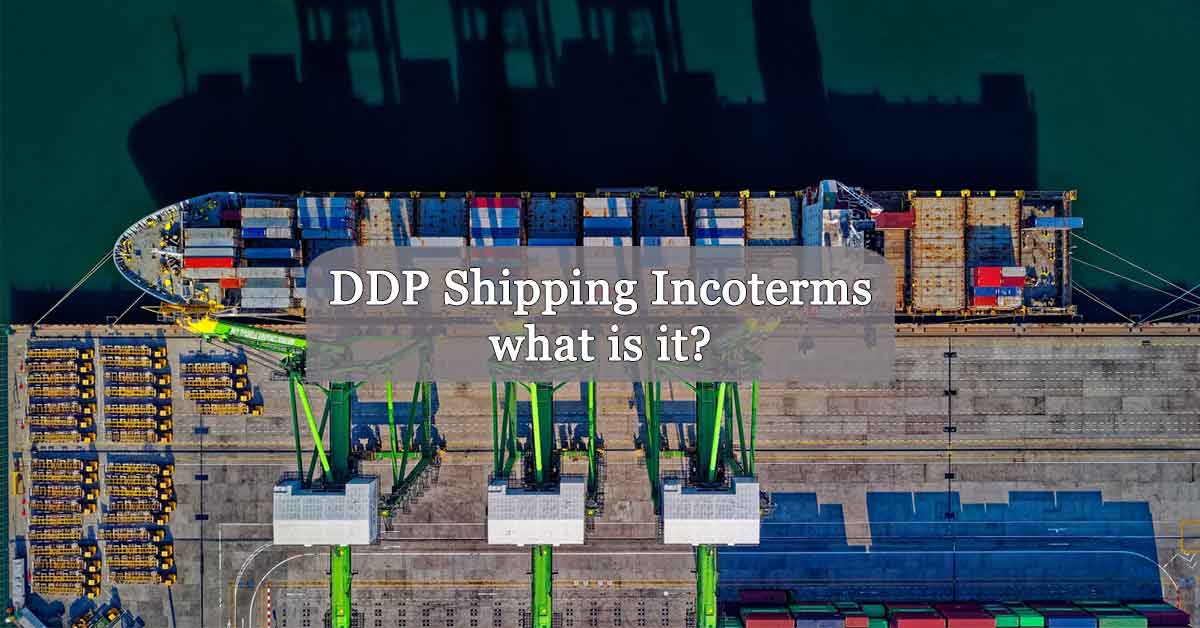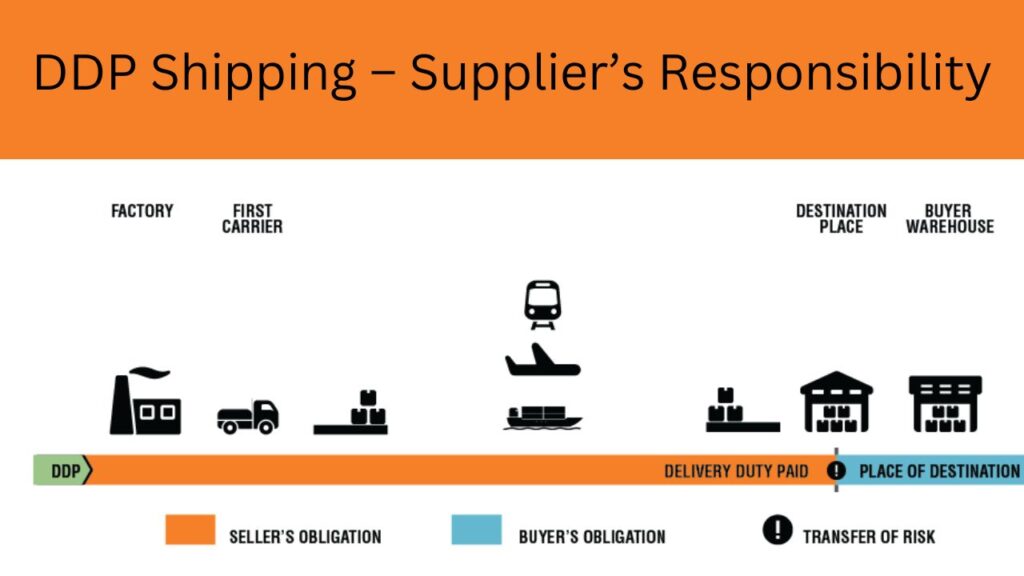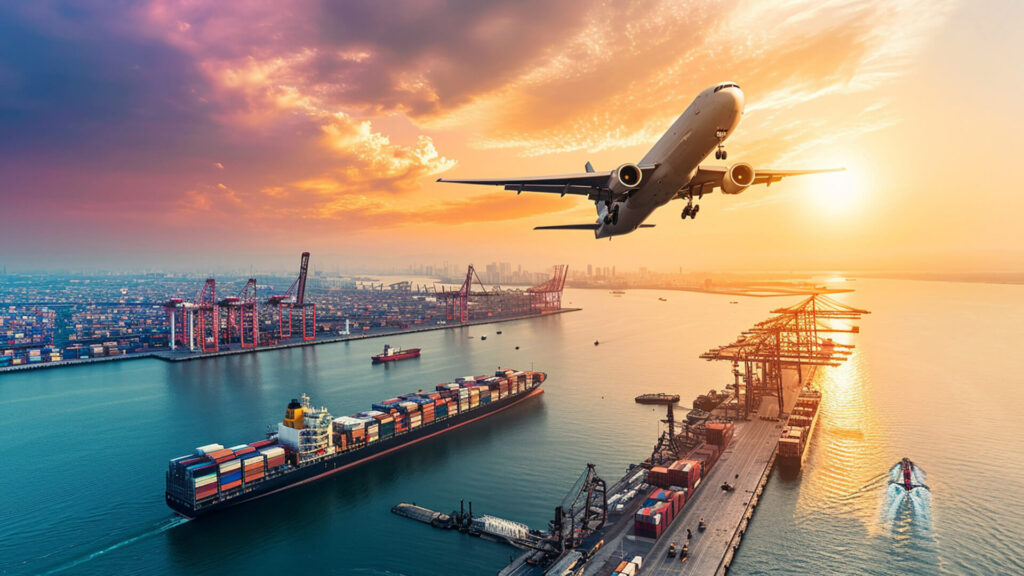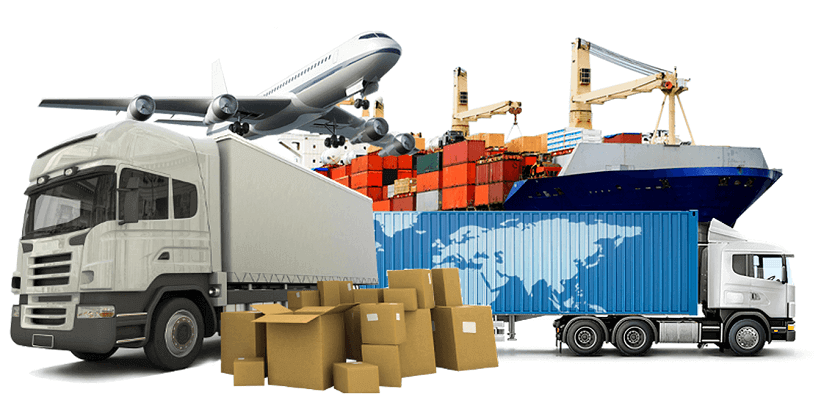DDP Shipping from China
Definition of DDP
DDP (Delivered Duty Paid) shipping from China refers to a service in international trade where the seller is responsible for delivering the goods to the buyer’s designated location in the destination country. This means the seller undertakes all costs associated with transportation, including freight charges, insurance, and handling fees, as well as any duties, taxes, and customs clearance costs until the goods are successfully delivered. It offers a seamless solution for buyers who want a hassle-free experience, as they do not need to worry about the complex logistics and financial aspects of getting the goods through customs and to their doorsteps.

Division of main responsibilities of DDP Shipping from China
Seller’s Responsibilities
- Transport Arrangement: The seller must organize and pay for the transportation of the goods from the origin in China to the destination. This includes choosing the appropriate mode of transport such as air, sea, or rail, depending on factors like the nature of the goods, urgency, and cost considerations.
- Customs Clearance: The seller is responsible for handling all customs formalities in both the exporting country (China) and the importing country. This involves accurate documentation, classification of goods, and payment of any applicable duties, taxes, and fees. Sellers need to be well-versed in the customs regulations of both countries to avoid delays and penalties.
- Delivery to Destination: The seller must ensure the goods are delivered to the buyer’s specified address in the agreed-upon time frame. This may involve coordinating with local delivery services or agents in the destination country.
Buyer’s Responsibilities
- Receiving the Goods: The buyer’s main responsibility is to be available to receive the goods at the designated location and time. They may need to provide necessary information or assistance for the final delivery, such as access to the delivery site or any specific instructions.
- Inspection: Upon receipt, the buyer has the right to inspect the goods for any damages or discrepancies. If there are issues, they should follow the agreed-upon procedures for reporting and resolving the problems, which are usually stipulated in the contract.

Who pays customs for DDP?
In DDP shipping from China, the seller is responsible for paying the customs duties. The seller takes on the financial burden and administrative tasks related to customs clearance. This includes calculating the correct amount of duties based on the value, type, and quantity of the goods, as well as complying with all customs procedures and regulations. By shouldering this responsibility, the seller aims to provide a more convenient option for the buyer, who does not have to deal with the often complex and time-consuming customs payment process.
DDP Shipping Operation Process from China
Pre-shipment
- Goods Preparation: The seller prepares the goods for shipment, ensuring they are properly packaged, labeled, and documented. This includes providing detailed information about the contents, weight, dimensions, and value of the goods.
- Booking Transport: The seller books the transportation service, whether it’s with an airline for air freight, a shipping line for sea freight, or a rail operator for rail freight. They negotiate the terms, including the price, transit time, and service level.
During Shipment
- Tracking and Monitoring: The seller (or their agent) tracks the shipment’s progress to ensure it’s on schedule. They can use various tracking systems provided by the transport carriers to keep an eye on the location and status of the goods.
- Customs Documentation Preparation: The seller prepares all the necessary customs documents, such as commercial invoices, packing lists, certificates of origin, and any other required permits or licenses. These documents must be accurate and comply with the regulations of both China and the destination country.
At Destination
- Customs Clearance: The seller’s agent or a local customs broker in the destination country submits the customs documentation and pays the duties on behalf of the seller. The customs authorities then inspect the goods (if required) and release them for delivery.
- Delivery: The goods are then delivered to the buyer’s address using local delivery services. The seller ensures that the delivery is made as per the agreed terms and that the buyer is informed throughout the process.
What are the methods for DDP Shipping from China?
Air Freight DDP Shipping From China
- Speed and Efficiency: Air freight is the fastest mode of transport for DDP shipping from China. It is ideal for high-value, time-sensitive goods such as electronics, perishable items, and fashion products that need to reach the market quickly. For example, a shipment of the latest mobile phones from a Chinese manufacturer to a European distributor can be delivered within a few days using air freight DDP service.
- Cost Considerations: While air freight is faster, it is also more expensive compared to sea or rail freight. However, for some businesses, the speed and reliability outweigh the cost. The seller may factor in the higher cost when pricing the goods to the buyer.
Sea Freight DDP Shipping from China
- Large Volume Capacity: Sea freight is suitable for transporting large volumes of goods. It is commonly used for bulky items like furniture, machinery, and raw materials. A Chinese exporter shipping containers of toys to the United States may opt for sea freight DDP service to take advantage of the lower cost per unit for large shipments.
- Transit Times: Sea freight has longer transit times, which can range from several weeks to months depending on the destination. However, it offers a more economical option for non-time-sensitive goods.
Rail Freight DDP Shipping From China
- Connectivity and Speed: Rail freight has gained popularity in recent years, especially for destinations in Europe and Asia. It provides a faster alternative to sea freight and is more cost-effective than air freight for certain routes. For example, shipments from China to Central Asian or European countries can be transported by rail in a relatively short time.
- Infrastructure and Capacity: The development of rail infrastructure has enabled more efficient transportation. With the increase in train services and container capacity, rail freight DDP shipping from China is becoming an attractive option for many businesses.

Applicable scenarios for DDP Shipping services
High-Value Goods
- For luxury products like designer handbags or high-end electronics, DDP shipping ensures that the goods are handled with care and that the buyer does not have to worry about any unexpected costs or complications during transit. The seller can manage the entire process to maintain the brand’s reputation and provide a premium service.
E-commerce Businesses
- E-commerce sellers who want to offer a seamless shopping experience to international customers often choose DDP shipping. It simplifies the process for the buyer, who can see the total cost at the time of purchase and does not have to deal with customs clearance. This can increase customer satisfaction and repeat business.
Long-Term Business Relationships
- In cases where there are established, long-term partnerships between buyers and sellers, DDP shipping can help strengthen the relationship. The seller takes on more responsibility, showing their commitment to the buyer and reducing potential disputes over costs and delivery.
Advantages and Disadvantages of DDP Shipping
Advantages
- Convenience for Buyers: The buyer does not have to deal with the complexity of customs clearance, payment of duties, or arranging transportation. They can simply wait for the goods to be delivered to their doorstep, saving time and effort.
- Risk Management for Sellers: The seller has more control over the shipping process, from start to finish. They can manage risks such as delays, damages, and customs issues more effectively by handling all aspects of the shipment.
- Enhanced Service Offering: DDP shipping can give sellers a competitive edge by providing a more comprehensive service. It can attract more customers and build loyalty.
Disadvantages
- Cost for Sellers: The seller has to bear all the costs and risks associated with transportation and customs clearance. This can be a significant financial burden, especially if there are unexpected delays, duties increases, or damages.
- Complexity in Documentation and Regulations: Sellers need to be well-versed in the customs regulations of different countries, which can be complex and constantly changing. Any mistakes in documentation can lead to delays or penalties.
DDP Shipping from China to other countries
Popular Destinations
- The United States is a major destination for DDP shipments from China. With its large consumer market, a wide range of goods are shipped using DDP services, from consumer electronics to clothing. European countries like the UK, Germany, and France also receive significant volumes of DDP shipments, especially for products such as furniture, machinery, and automotive parts.
Emerging Markets
- Countries in Southeast Asia, South America, and Africa are also increasingly becoming destinations for DDP shipping from China. As these markets grow, the demand for Chinese goods is rising, and DDP services help facilitate trade by simplifying the logistics process.

Which countries do not accept DDP?
Some countries have specific regulations or restrictions that may make DDP shipping more challenging or not allowed in certain situations. For example, countries with strict import controls or complex customs procedures may have limitations. In some cases, there may be issues with the local infrastructure or legal systems that make it difficult to implement DDP services. However, it’s important to note that this can vary depending on the type of goods, the nature of the trade relationship, and other factors. Some countries may have restrictions on certain categories of goods like firearms, pharmaceuticals, or hazardous materials for DDP shipping.
Why need Insurance in DDP service?
| Reasons for Insurance in Door to Door Shipping | Explanation |
|---|---|
| Financial Protection | Insurance provides financial coverage for the value of goods in case they are lost or damaged during transportation. Without insurance, the financial loss would be absorbed by the shipper. |
| Risk Mitigation | Insurance helps to mitigate the risks associated with shipping goods. These risks include damage, theft, loss, and delays due to unexpected events such as natural disasters or accidents. |
| Limited Carrier Liability | Carrier’s liability is typically limited by international conventions and may not cover the full value of the goods. Having insurance ensures you’re covered beyond the carrier’s liability. |
| Regulatory Requirements | Depending on the type of goods and the countries involved, insurance may be a regulatory requirement for shipping goods. |
| Peace of Mind | Knowing that potential losses are covered by insurance gives peace of mind and allows the shipper to focus on other aspects of their business. |
Things to note about DDP services
Contractual Agreements
- Clear and detailed contracts are essential when using DDP services. The terms and conditions, including the responsibilities of both parties, the cost breakdown, and the dispute resolution mechanism, should be clearly stated. This helps avoid misunderstandings and potential conflicts.
Customs Compliance
- Sellers must stay updated on the customs regulations of both China and the destination country. Any changes in tariffs, import/export restrictions, or documentation requirements can impact the DDP shipping process. Working with experienced customs brokers or consultants can help ensure compliance.
Communication and Tracking
- Good communication between the seller, the buyer, and the transport service providers is crucial. Regular updates on the shipment’s status, any potential issues, and estimated delivery times should be provided. Additionally, using advanced tracking technologies can help all parties monitor the progress of the goods in real-time.


